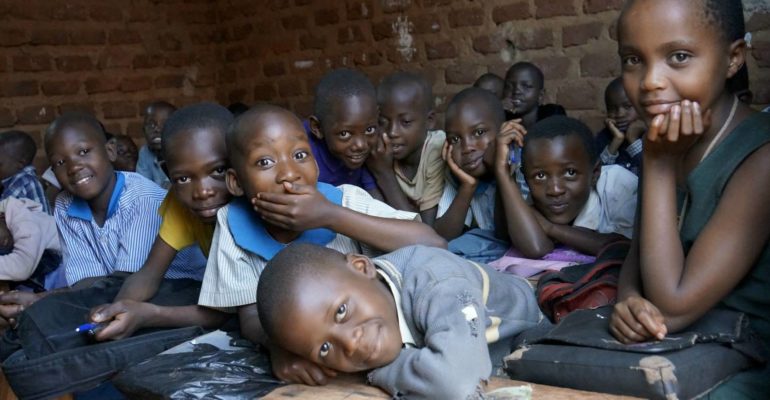Children in the rural areas of Zimbabwe face many challenges in their everyday life, and their ability to go to school and perform well suffers as a result. We have created Rural School Outreach Program that is designed to alleviate some of the challenges these children face, so that they might have the opportunity to get a proper education. We have implemented this program in the rural areas outside of Victoria Falls, and our primary focus is on 7 secondary schools.
Here are some examples of the biggest challenges the students in rural Zimbabwe face:
DISTANCE: Schools in the rural areas of Zimbabwe are located at great distances from one another; as a result, the children are faced with long walking distances to and from school. The average distance the children walk is 12 to 16 kilometers (7.5 to 10 miles) to and from school each day. Due to the long distances they have to travel to school, they have to endure cold temperatures during their early morning walks and hot temperatures during their afternoon walks. The effects of these temperature extremes are compounded by the fact that most of the children do not have proper clothing or even shoes. Tardiness and fatigue are further complications associated with these long walks. The children often arrive at school late and miss valuable class time, while also getting home after dark, when there is no light left to study. The fatigue the children experience after 2 hours of walking leads to the inability to focus at school and study when they get home.
NUTRITION: Fatigue is not only a direct result of distance traveled to and from school, but also from the fact that the children in the rural areas don’t receive food at school. Most children in the rural areas go 12-14 hours without eating during the day.
RESOURCES: Schools in the rural areas are often neglected in terms of having learning resources. Text books and school supplies are expensive and not provided by the government. If the children are fortunate, they might have a few text books per class that they can share. School supplies cost money, and with the average family earning less than $5 a month, there is no money to spare for these items.
SCHOOL FEES: Families in the rural areas most often depend on subsistence farming, which means they have little or no income. As mentioned above, the average family earns less than $5 a month. School fees cost $35 a semester in the rural areas, which is an almost impossible amount for any family to pay. Children can attend school without paying school fees, but they are not allowed to sit for exams. Without taking their exams, they have no chance of graduating and moving on to a higher education.
ENGLISH: English is not the local language, but all subjects at school are taught in English. Many children struggle learning English and need extra lessons. Without being proficient in English, the children suffer in all of their other subjects / studies. If a child is struggling in an area at school and needs extra lessons or tutoring, there is no money for families to pay a teacher to provide these lessons.
FEMININE HYGIENE: Female students in the rural areas face additional challenges to their success at school. During their menstrual cycle many of the girls stay at home and miss school, because they do not have access to feminine hygiene products. When they miss a lot of classwork for this reason, they are more likely to fail their classes.
What our Rural School Outreach Program will be funding is the following student needs: (costs are based on maximum number of children in a rural school, which is 300)
- School lunch ($300 a month, $900 per semester, $2700 per year)
- School Supplies ($360 a month, $1080 per semester, $3240 per year)
- Textbooks ($9 per book, $270 per subject, 10 subjects $2700)
- Feminine hygiene products ($150 per month, $450 per semester, $1350 per year)
- School fees ($35 per child per semester, $105 per year) – In a scholarship form, with recipients being awarded based on school performance and attendance.
- English Lessons – $100 total for all students (combined) for 2 week courses between semesters.
Please consider taking part in this important program. If you like, you can specify which student need you would like your donation to go towards, or we can apply it towards the needs we see as the highest priority. Either way, you will be giving these children a chance at a proper education and a prosperous future.
Thank you!
ISWS team

